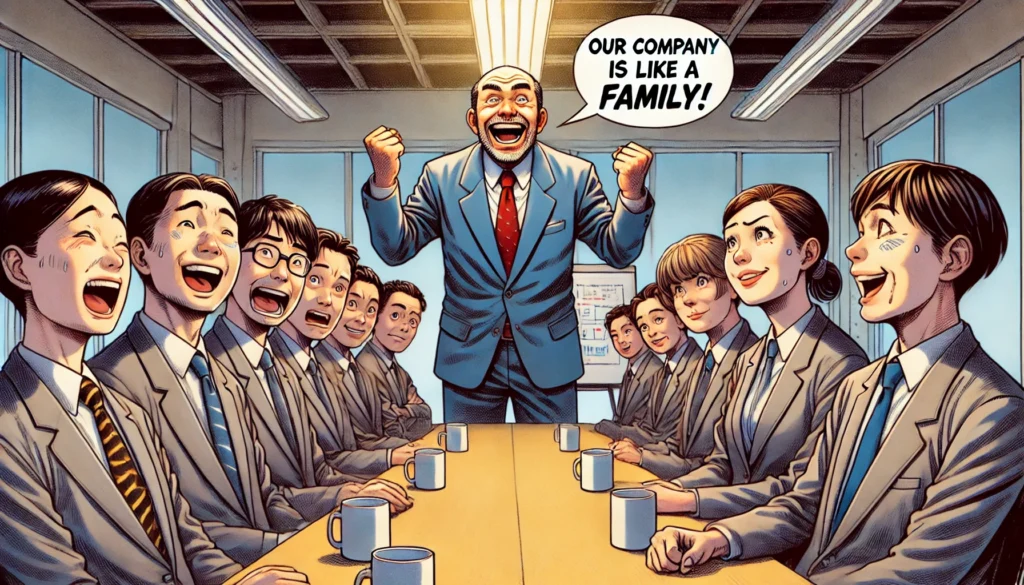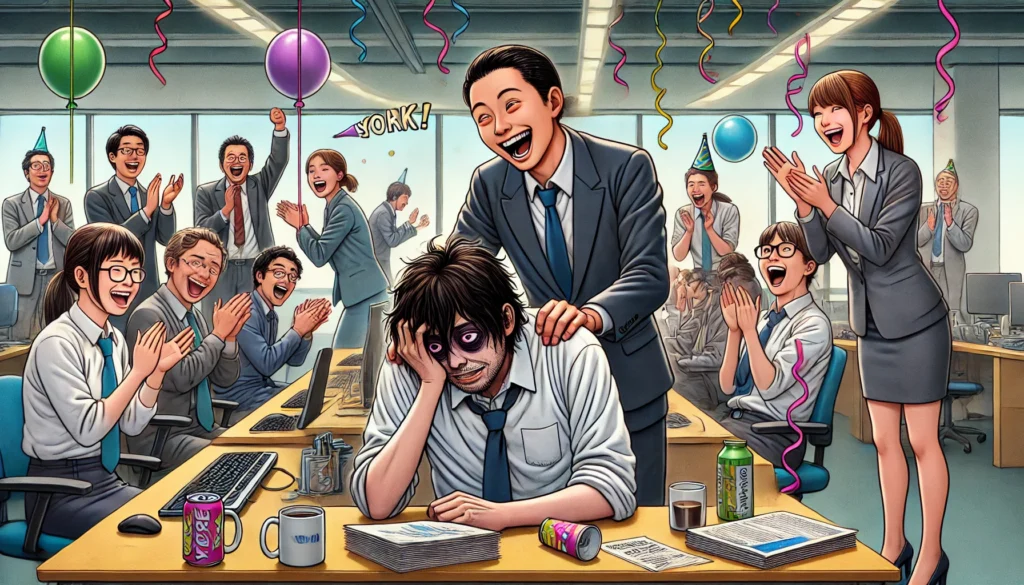Japan has a unique and disturbing labor issue known as “karoshi”, or death from overwork.This term refers to cases where excessive work-related stress and fatigue lead to fatal conditions such as heart attacks, strokes, or even suicide.
Despite being recognized as a serious social issue, karoshi remains a persistent problem in Japan.
Why do Japanese people work themselves to the point of death?
Why is overworking considered a virtue in Japanese society?
In this article, we will delve into the cultural and societal factors behind the karoshi problem and explore why so many Japanese workers push themselves beyond their limits.
1. “Karoshi” – A Global Infamous Phenomenon

The word “karoshi” originated in Japan but has become internationally recognized.
It is even included in major English dictionaries and frequently appears in global media, such as BBC, The Guardian, and The New York Times, as a symbol of Japan’s harsh working conditions.
However, in most countries, the idea of working oneself to death is almost unimaginable.
For example, in France, the legal standard is a 35-hour workweek, and working too much can actually result in penalties.
Meanwhile, in Japan, working 100+ hours of overtime per month is not uncommon, and people accept it as “normal.”
Why does this extreme work culture exist in Japan?
2. A Society Where Work Comes First

In Japan, work often takes priority over everything else.
Especially since Japan’s post-war economic boom, a mentality of “loyalty to the company” has become deeply ingrained in society.
📌 Reasons Why Japanese People Overwork
✅ The company is like a family
→ Employees feel a strong sense of duty to their workplace.
✅ Saying “no” is difficult
→ Many workers feel guilty refusing extra tasks or overtime.
✅ Leaving on time is frowned upon
→ Even if a worker has finished their tasks, they often hesitate to leave before their boss does.
As a result, working hours continue to extend indefinitely, leading to chronic exhaustion and, in extreme cases, karoshi.
3. The “No Refusal” Culture Fuels Karoshi

Japanese people struggle to say “no”, especially in work environments.
When given extra work, most people don’t immediately say, “I can’t do this.”
Instead, they say “I’ll try” or “I’ll do my best,” even when they are already overwhelmed.
📌 Why Is It Hard to Say “No” in Japan?
• Teamwork-oriented culture → “If everyone else is doing it, I can’t refuse.”
• Strong workplace hierarchy → “Saying no to a superior is disrespectful.”
• A culture of ‘reading the atmosphere’ → “If I refuse, it will create tension in the workplace.”
Because of these factors, workers feel obligated to accept excessive workloads, which inevitably leads to burnout and, in some cases, karoshi.
4. Overworking Is Seen as a Virtue

In Japan, effort and perseverance are highly valued.
Even if a task could be completed efficiently, “working longer hours” is often considered proof of dedication.
📌 How Does Japan Compare to Other Countries?
• United States → Performance-based evaluation. Employees are judged on how efficiently they complete their work.
• France → Prioritizes work-life balance. Overworking is discouraged.
• Japan → Staying late at the office is seen as a sign of commitment and hard work.
This mindset encourages unnecessary overtime and inefficient working habits, further worsening the problem of karoshi.
5. How Can Karoshi Be Prevented?
Simply reducing work hours is not enough to eliminate karoshi.
Japan needs a fundamental change in its cultural and workplace values.
📌 Key Areas for Improvement
✅ Stop treating long working hours as a virtue
✅ Encourage employees to say “no” when necessary
✅ Shift to a performance-based evaluation system
✅ Promote flexible work styles like remote work and flextime
Although Japan’s work culture is gradually evolving, karoshi is still a significant issue.
This proves that deeper structural and cultural reforms are necessary.
Conclusion
The karoshi problem is not just about long working hours.
It is deeply rooted in Japan’s “no refusal” culture, work-first mentality, and glorification of overworking”.
In recent years, companies that force excessive workloads and exploit their employees have been labeled as “black companies” (ブラック企業), a term widely used to describe workplaces with exploitative labor practices.
At the same time, awareness among workers is slowly changing. More employees are beginning to question these harsh working conditions and advocate for a healthier work-life balance.
However, the problem is far from solved—many workers still feel trapped in this culture, unable to say “no” due to social pressure.
Japan must continue to reevaluate its labor culture and create an environment where workers can thrive without sacrificing their health and well-being.
Only by making fundamental changes to how work is perceived can Japan finally put an end to the karoshi problem.




Comments